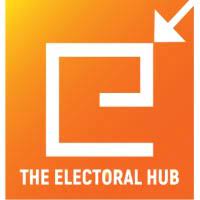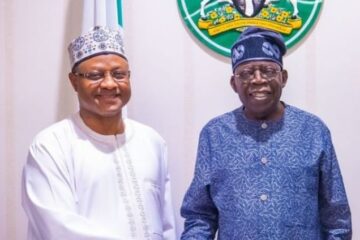What INEC should note about violence during, after elections, by varsity don

A professor of Political Science, Prof. Okechukwu Ibeanu, has lamented continuing violence during and after elections in Nigeria, saying more needed to be done, especially in the area of collaboration between the Independent National Electoral Commission and stakeholders to stop the trend.
Prof Ibeanu, who lectures at the University of Nigeria, Nsukka, stated this in his presentation in Abuja at a stakeholders’ meeting to present briefing papers on impact of insecurity on elections under The Electoral Hub’s project on ‘Citizen’s Right and Impact of Insecurity on the 2023 General Election’.
The project is supported by the Open Society Foundations and is targeted at providing support to INEC through the production of three well-researched policy and briefing papers on the impact of insecurity on elections.
Former INEC Chairman, Prof Attahiru Jega, chaired the meeting.
Ebeanu, who is also a former INEC National Commissioner and consultant for The Electoral Hub, said ensuring a violent-free election hinged on effectively safeguarding the electoral process, which would in turn prevent electoral violence.
He noted that elections, in the context of rising expectations, zero-sum outcomes and communal mobilization like Nigeria, tend to be violent.
The professor urged INEC and other stakeholders must be cautious and watch out for some indicators that could lead to violent.
According to Ebeanu, voter suppression and intimidation, especially along ethnic and religious lines could lead to violence. He added that urban areas with large concentration of people who are not indigenous to the locality would be most prone to the dimension of electoral violence.
The don added that manipulation of security could cause problem. He said the over-deployment or under-deployment of security personnel could be a cause or amplifier of violence.
He added, “Logistics failure in the part of INEC has always posed a threat of violence on election day and after. The impression that such failure is for partisan reasons fuels anger among voters and political parties who feel that they are the targets. Of a high premium here will be technological hitches. In 2015, the use of a particular telephone network in some parts of the country, which failed to activate Smart Card Reader was perceived by voters in those areas as an attempt by INEC to disenfranchise them.”
The professor, who noted that incitement, fake news and hate speech could spark the tinder box of electoral violence, also pointed out that judicial decision in the aftermath of the elections could become a major precursor of electoral violence.
He added that where elections are close to call, desperate politician could use everything at their disposal including violence.
The project coordinator and Director, IRIAD-The Electoral Hub, Princess Hamman-Obels, said the presentation was not to discourage INEC, but to support the organisation on critical area that could undermine conduct of elections.











